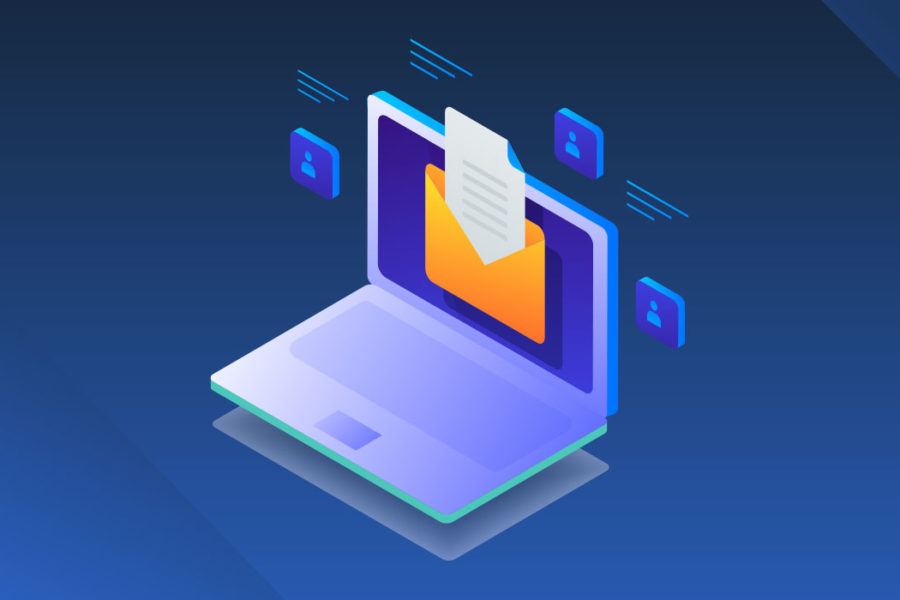Spam mail is a type of malicious email, undesirable by the beneficiary. It usually is a solitary message which contains promotions and is shipped off an assortment of beneficiaries who never consented to get such messages.
Email is one amongst the best and most convenient channels wherever we will transfer data and share knowledge with others. However, it’s additionally common to receive data or emails that contain dubious messages. Some email service suppliers filter and mark such malicious attachments with the word “SPAM” within the subject of the e-mail, indicating to the recipient that the e-mail is either a junk email or unsought email sent to varied recipients by the sender. Clicking on links in such spam email might direct the recipient to sites that transfer malware to the victim’s pc.
Here are different ways to protect yourself from spam:
1. Do not post e-mail address publically
It is important to note that everybody can, without much of a stretch, access the Internet. That implies, spammers are likewise hiding on the Internet and are continually looking for accessible email tends to which they will send spam messages to. Posting your email address openly permits others to send spam messages to you, or more regrettable, hack your record on the off chance that you are utilizing a frail secret phrase.
2. Always think twice before clicking
There may be examples where your email specialist organizations’ computerized email channel erroneously marks real messages as spam email because of its substance. However, most of the time messages set apart as “SPAM” or diverted to the spam envelope of your letter box are sent by spammers. Subject of spam messages ordinarily incorporate proposal of modest doctor prescribed medications, promotions on new meds, and status of bundles from delivery organizations. Ensure that you investigate the substance of spam messages prior to opening any connections or tapping on hyperlinks. Shun downloading substance obstructed by your email specialist co-ops in such messages as well.
3. Never reply to spam messages
All the spam messages are detrimental emails sent by unknown sources. These sources might be hackers who aim to hack into the computers of their victims. Ne’er reply to spam messages because as a result of this, the transmitter can recognize that the e-mail address is active and therefore, it will increase the prospect of your email to be perpetually targeted by the transmitter.
4. Download anti-virus software
Spam separating apparatuses and anti-virus programs can assist with filtering the messages that you got for malware. In the event that the messages that you got contain malware, the malignant substance would be isolated and you would be kept from opening it. This assists with easing the opportunity of messages containing malware from tainting your PC. Accordingly, do choose spam sifting apparatuses and hostile to infection programming with such highlights to diminish your hardships of translating email substance.
5. Do not trust alarming messages
One of the regular deceives you may experience in questionable sites is one that declares that there are basic blunders in your PC and that you need to introduce the counter infection programming to address it. Immediately on the off chance that you introduce the referenced programming, you’ll be the casualty of malevolent con artists who can take data from your PC.
6. Have strong passwords
Never set passwords that are nonexclusive or simple to figure, similar to your name. Pick a solid secret key which incorporates letter sets, numbers, and exceptional images. Never share your secret phrase with anybody or give hints about what it very well may be. Another best practice is to pick various passwords for various destinations/accounts.
Utilizing a solitary secret word for everything makes you helpless. Secure every one of your gadgets through passwords and unique mark lock at whatever point conceivable. Go for two-venture confirmation at whatever point it is made accessible. The burden of putting in a couple of additional seconds will help keep your information secure.
7. Do not use open Wi-Fi
Use public Wi-Fi for casual searching, news verifying, or escapism. Never use it to access your private or business emails or finance sites. The Internet is a mecca of information and communication. Use it with skepticism, and you’re going to have a great and safe expertise!
8. Do not save your personal information
It’s anything but a shrewd plan to store passwords and significant data and personality information in your hard drive or cloud administrations. Not many cloud administrations give information encryption to ‘information very still’ or inert information.
9. Spam flag in the e-mail account
Do inform or train your email client to identify and sort out spam entering your inbox. Instead of deleting spam emails yourself, select them and click the button “Report spam” (the button usually has a big exclamation point) Many email clients can automatically reach your spam folder and they may also flag an email as spam that isn’t spam. Once a month, pop into your spam folder and look for any emails that are legitimate and flag them as “not spam.” As you go through this process, your email consumer should also be gradually better equipped in real spam and regular emails.
Types of Spams
Following are the few types of spam that one can encounter during online sessions:
- phishing
- Smishing
- Malware
- Malicious apps in mobiles
- Insecure networks
Conclusion:
Technology has boosted by such huge strides that it is possible to view information or interact rapidly and effortlessly with anyone around the world. With all the growth, the downside comes as well.Spam email could licitly attempt to sell you one thing like flashlights or supplements. However, spam will simply expose you to an entire host of IT security threats like business email compromise whereby the spammers conceive to steal your identity and social insurance range, etc.
Learning the way to forestall spam is simply as vital as learning the way to forestall phishing and defend against ransom ware, among several alternative cyberthreats you wish to protect against.






Leave a Comment